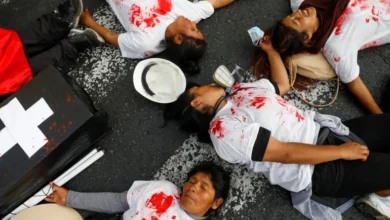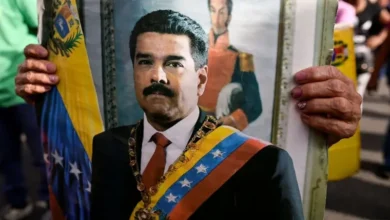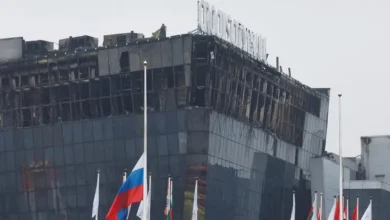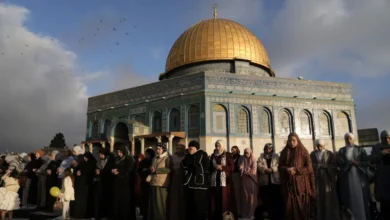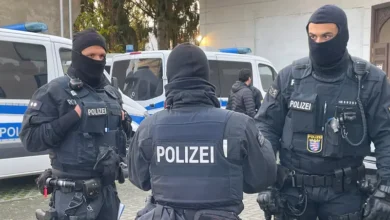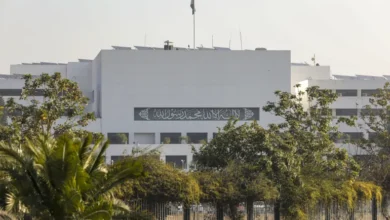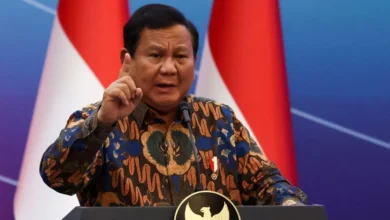Guilt, anguish of Palestinians mourning Gaza from afar as Israel bombs it
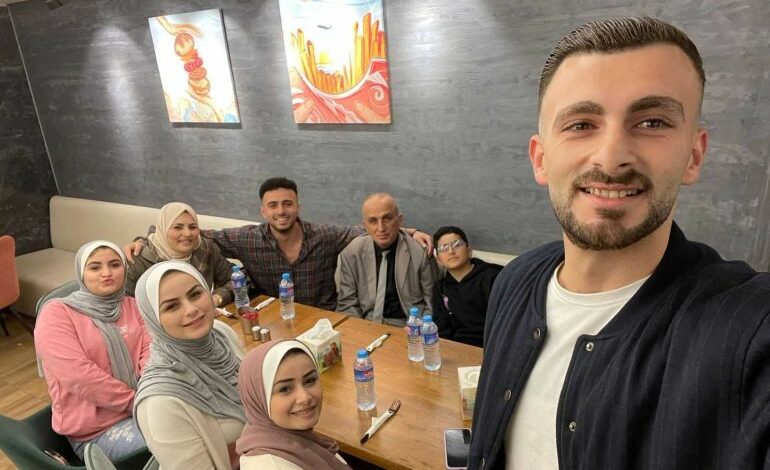
Ahmed Nehad, 24, left Gaza two months ago to pursue a master’s degree in the United Kingdom and has been talking about Palestine since he got there, especially in the past two weeks.
Adham Mousa, 27, has been away from Gaza for 11 years, ending up in the United States, where he lives and works. He has been back to Gaza only once, in November 2022, and now does not know when he will be able to return.
They are two of the many Palestinians outside Gaza who are mourning at a distance after hearing of relatives and friends being killed under intense Israeli bombardment as hundreds of people die, entire neighbourhoods are obliterated and the healthcare system collapses.
The struggle of Palestinians far from their extended support networks is compounded because no matter how much their friends try to support them, this kind of pain is hard to explain or share fully.
‘I’d rather be home with my family’
Mousa’s father used to send him a “Good morning” text every day ever since he left Gaza.
Now he sends a text saying: “We are fine and alive” whenever he gets access to mobile service or the internet.
Mousa says words cannot describe his feelings about what is happening to Gaza – anger, sadness, frustration and fear grip him as he worries about his family and the 2.3 million other people in Gaza.
“I know what it is like to be under constant air strikes and having to flee your house in fear of getting bombed. I was there in 2008-2009 during the Gaza massacre, but I’d much rather be home with my family than watch them suffer from afar on a daily basis,” he said.
Nehad spends his days monitoring the assaults on Palestinians in the occupied West Bank, Jerusalem, the Gaza Strip and within Israel, something that he says “feels like a job”.
“Every day, news about killings, displacements, home demolitions and arrests of innocent Palestinians in the middle of the night fills my work and conversations about Palestine to everyone here,” Nehad said.
When the attacks this month in Israel by the armed wing of Hamas, the group that governs the Gaza Strip, first made the news, Nehad says, the whole world was in shock around him with colleagues, classmates and professors discussing the “conflict”. Probably because, he said, the victims were Israeli, not Palestinians.
His university and other institutions in the UK sent out emails condemning the “terrorist” events in Israel.
“My family and all my friends were displaced from their homes. Our home was destroyed. Gaza, which I left two months ago, is in ruins. But the emails haven’t changed. We still get emails condemning Hamas and warning us against showing any sympathy to Palestinian ‘terrorists’,” Nehad added.
He does not feel safe in the UK, he said. Anyone seen to be “sympathising” with Palestine, including by raising the Palestinian flag or wearing a Palestinian keffiyeh headdress, is reported to university management or the authorities. Attending protests in the UK is risky.
‘I want to be where I belong’
Mousa feels less alone, having been supported by friends and co-workers as if he has been through a bereavement.
“The first thing I did was to look for flight tickets to return to Gaza and be with my family. But the Egyptian government closed the border as soon as the Israelis started bombing Gaza, so there was no legal way for me to return to the homeland,” Mousa said.
So he stayed in the US and tried instead to educate people on what was happening in Gaza and other Palestinian areas.
“I don’t think most people here are curious enough to learn about the Palestinian struggle on their own,” he said, adding that he now uses his social media profiles to share the story of Palestine.
“It is a frustrating position to be in, but I will never stop sharing the truth, and I hope others will start sharing it too,” Mousa said.
Contacting families in Gaza is nearly impossible. Mousa tries to call every hour of the day because there is no way to tell when his loved ones will have internet or mobile service.
“It’s a relief when someone picks up the phone. I immediately think, ‘Thank God. They’re alive,’” Mousa said.
His father was meant to come to visit him, but the trip is now cancelled. “I don’t get to see my family, and only God knows when and if I will be able to see them again,” he said.
Nehad is similarly in pain. “I’m consumed by guilt. I feel a profound betrayal. I want to be under the bombardment.
“This world, which goes on as if the extermination of two million people in Gaza isn’t happening right now, doesn’t fit me.
“I’m the ‘other’ in it. I want to leave it. I want to be where I belong, in Gaza, the unimportant place, with the ‘others’ whose blood, homes and lives don’t matter.”
They are two of the many Palestinians outside Gaza who are mourning at a distance after hearing of relatives and friends being killed under intense Israeli bombardment as hundreds of people die, entire neighbourhoods are obliterated and the healthcare system collapses.
The struggle of Palestinians far from their extended support networks is compounded because no matter how much their friends try to support them, this kind of pain is hard to explain or share fully.
‘I’d rather be home with my family’
Mousa’s father used to send him a “Good morning” text every day ever since he left Gaza.
Now he sends a text saying: “We are fine and alive” whenever he gets access to mobile service or the internet.
Mousa says words cannot describe his feelings about what is happening to Gaza – anger, sadness, frustration and fear grip him as he worries about his family and the 2.3 million other people in Gaza.
When the attacks this month in Israel by the armed wing of Hamas, the group that governs the Gaza Strip, first made the news, Nehad says, the whole world was in shock around him with colleagues, classmates and professors discussing the “conflict”. Probably because, he said, the victims were Israeli, not Palestinians.
His university and other institutions in the UK sent out emails condemning the “terrorist” events in Israel.
“My family and all my friends were displaced from their homes. Our home was destroyed. Gaza, which I left two months ago, is in ruins. But the emails haven’t changed. We still get emails condemning Hamas and warning us against showing any sympathy to Palestinian ‘terrorists’,” Nehad added.

